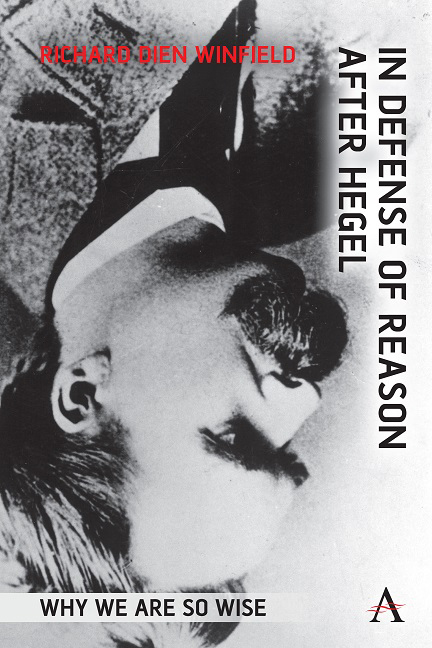Book contents
- Frontmatter
- Contents
- Acknowledgments
- Introduction
- 1 Why We Are So Wise: Hegelian Reflections on whether Reason Can Be Enhanced
- 2 Self-Determination in Logic and Reality
- 3 Hegel’s Overcoming of the Overcoming of Metaphysics
- 4 On Contradiction: Hegel versus Aristotle, Sextus Empiricus, and Kant
- 5 Overcoming Actuality: How Hegel Frees Us from the Prison of Modality
- 6 Time and Reason
- 7 Hegel and the Problem of Consciousness
- 8 Hegel and the Origin of Language
- 9 The Logic of Right
- 10 A Dream Deferred: From the US Constitution to the Universal Declaration of Human Rights
- 11 World Spirit on the Campaign Trail in Georgia: Can the Philosophy of Right Be a Guide to Social Reform?
- 12 The Classical Nude and the Limits of Sculpture
- Bibliography
- Index
2 - Self-Determination in Logic and Reality
Published online by Cambridge University Press: 26 May 2022
- Frontmatter
- Contents
- Acknowledgments
- Introduction
- 1 Why We Are So Wise: Hegelian Reflections on whether Reason Can Be Enhanced
- 2 Self-Determination in Logic and Reality
- 3 Hegel’s Overcoming of the Overcoming of Metaphysics
- 4 On Contradiction: Hegel versus Aristotle, Sextus Empiricus, and Kant
- 5 Overcoming Actuality: How Hegel Frees Us from the Prison of Modality
- 6 Time and Reason
- 7 Hegel and the Problem of Consciousness
- 8 Hegel and the Origin of Language
- 9 The Logic of Right
- 10 A Dream Deferred: From the US Constitution to the Universal Declaration of Human Rights
- 11 World Spirit on the Campaign Trail in Georgia: Can the Philosophy of Right Be a Guide to Social Reform?
- 12 The Classical Nude and the Limits of Sculpture
- Bibliography
- Index
Summary
From the beginnings of philosophical investigation, there has been widespread recognition that reason must be autonomous to think the truth and that philosophy must be the freest of all disciplines. The freedom reason and philosophy must wield has two sides.
On the one hand reason must possess the negative freedom to liberate itself from all determining conditions. If reason fails to do so and lets itself be guided by any external authority, every claim reason makes will be relative to the particular grounds that rule its operation. To overcome the hold of unexamined opinion, reason must emancipate itself of all presuppositions regarding its subject matter and methodology. Otherwise, thought remains bound by dogmatic claims about its topic and procedure, unable to obtain knowledge that surmounts particular opinion and enjoys unconditioned universal validity.
By casting aside the hold of assumed foundations, such liberation indicates how the autonomy of reason and philosophy is tied to the attainment of the unconditioned universality that gives thought its special role as a vehicle of truth. Nonetheless, by itself, this emancipation leaves liberated reason utterly empty unless it can exercise an autonomy that is not just negative but positive as well.
The negative freedom that revokes acceptance of given opinion may free thought of all predetermined form and content, but this liberation leaves thought with a universality that is devoid of any particular content, rendering its unconditioned character a vacant promise. Only if reason can determine by itself what its subject matter and method should be, can reason move from its empty negative emancipation to a positive constitution of philosophical wisdom. Philosophy can proceed from repudiating dogmatism to being fully responsible for all its own claims only if it exercises the positive self-determination where the unconditioned universality of thought shows itself to be pregnant with content.
To be the freest of all sciences, as the search for wisdom requires, philosophy must commence as logic. Any nonlogical starting point automatically leaves thought encumbered with given assumptions about both its form and its content. Whereas logic is a thinking of thinking, nonlogical investigation thinks what is different from thought. As such, nonlogical investigation cannot account for the thinking it employs, since it enquires into something distinct from the reasoning it exercises.
- Type
- Chapter
- Information
- In Defense of Reason after HegelWhy We Are So Wise, pp. 23 - 46Publisher: Anthem PressPrint publication year: 2022



